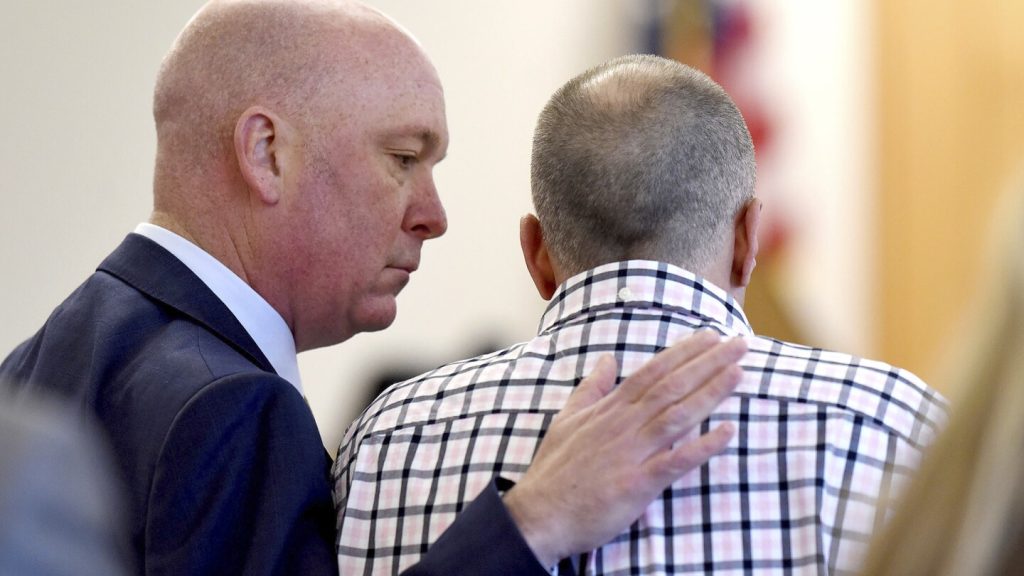The state of New Hampshire is facing abuse allegations at its youth detention center, with plaintiff David Meehan alleging he was repeatedly raped, beaten, and locked in solitary confinement at the Youth Development Center in Manchester in the late 1990s. Meehan went to the police in 2017 and sued the state three years later. Since then, 11 former state workers have been arrested, and over 1,100 former residents have filed lawsuits claiming negligence by the state allowed abuse over several decades. Meehan’s lawsuit is the first to go to trial, and he faced further cross-examination by Martha Gaythwaite, representing the state.
Gaythwaite questioned Meehan’s credibility, suggesting he was a troublemaker who deserved punishment as a teen and now seeks a payout as a delusional adult. She asked Meehan about the events that led to his placement in the facility and his experiences with gangs, sex, and drugs. She also raised doubts about Meehan’s claim that he contracted gonorrhea from being raped by a male staffer at age 15, pointing out contradictory details in his medical records and his description of events. The attorney highlighted discrepancies between Meehan’s testimony and the official records from the time.
The attorney general’s office is in a unique position, prosecuting former workers for abuse at the youth detention center while also defending the state against civil lawsuits. Gaythwaite pressed Meehan on his mental health history, including instances where he was committed to a psychiatric facility. The state argues that it should not be held liable for the actions of “rogue” employees and claims that Meehan waited too long to come forward with his allegations. The statute of limitations for such lawsuits is three years from the date of injury, with exceptions for cases where victims were unaware of the link to the wrongful party.
Throughout the proceedings, Meehan maintained his composure but grew emotional when discussing the impact of recalling the abuse to investigators, medical professionals, lawyers, and the jury. He expressed frustration at the suggestion that his past behavior as a troubled teen justified the abuse he suffered or raised doubts about his credibility as an adult. The trial brings to light the complex legal and emotional aspects of seeking justice for historical cases of abuse, with the plaintiff facing scrutiny and skepticism in a challenging legal battle against the state.
The case highlights the importance of addressing long-standing allegations of abuse in state-run institutions and holding perpetrators accountable for their actions, even decades after the incidents occurred. The legal proceedings shed light on the challenges faced by survivors of abuse seeking justice, including questioning of their credibility and motivations for coming forward. As the trial continues, the court will need to carefully consider the evidence presented and ensure that the truth about the alleged abuses at the youth detention center is properly assessed to deliver justice for the victims and prevent future harm in similar settings.


